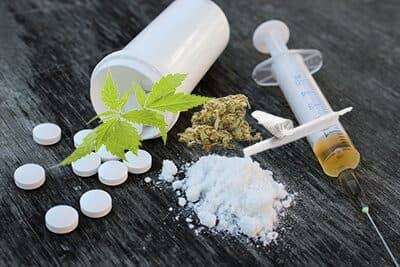A recent study by RMIT University highlights the risks associated with purchasing drugs from cryptomarkets using cryptocurrency.
The Royal Melbourne Institute of Technology (RMIT) discovered in a recent investigation that only 65% of medicines purchased online with cryptocurrency contained the advertised substances.
Notwithstanding the prevalent belief that illicit substances acquired in this manner are more likely to possess superior quality and are thus deemed “safer.”
In collaboration with the University of New South Wales (UNSW Sydney), RMIT University, the Australian National University, and the Canadian testing facility Get Your Drugs Tested, 103 drug samples were obtained from the Test4Pay darknet forum.
These samples were subsequently analyzed to determine the presence of substituted substances and their purity.
Reportedly conducted with immunoassay strip tests and Fourier-transform infrared spectroscopy, the study found that only 65% of the purchased drugs were precisely as described.
In comparison, 21% contained an entirely different substance, and 14% had the advertised drug mixed with other compounds.
Chemical substitution was most prevalent in substances such as cocaine, ketamine, 2C-B, and alprazolam; in contrast, MDMA, methamphetamine, and heroin were frequently detected to contain solely the substance that was advertised.
Cryptomarket Perception vs. Reality
Lead researcher Dr. Monica Barratt expressed concern over the investigation’s findings, which contradict the widely held belief that pharmaceuticals purchased through cryptomarkets would not be withdrawn or substituted with other medications (Medical Press).
Barratt explained, “Since cryptomarkets enable anonymous purchasers to rate purchases, vendors selling inferior products are, in theory, more likely to receive negative feedback; this rewards vendors selling superior products.”
Notwithstanding this perception of quality and accountability, she continued, “Our research indicates that illicit substances procured from cryptomarkets remain susceptible to adulteration and substitution.”
Mixing drugs with other substances is a common practice pursued to optimize financial gains. As an illustration, the price of a drug bundle may increase when an additional substance augments both the weight and perceived quantity of drugs for sale.
Although Barret supports expanding drug-checking services in Australia, he questions the nation’s willingness to implement such initiatives.
She stated, “Australia’s opposition to the expansion of drug-checking facilities is predicated on the misconception that drug testing ‘approaches’ drug use.”
“In a credible and nonjudgmental manner, the service can clarify the known risks of specific drugs, allowing drug users to modify their behavior to reduce risk.”












